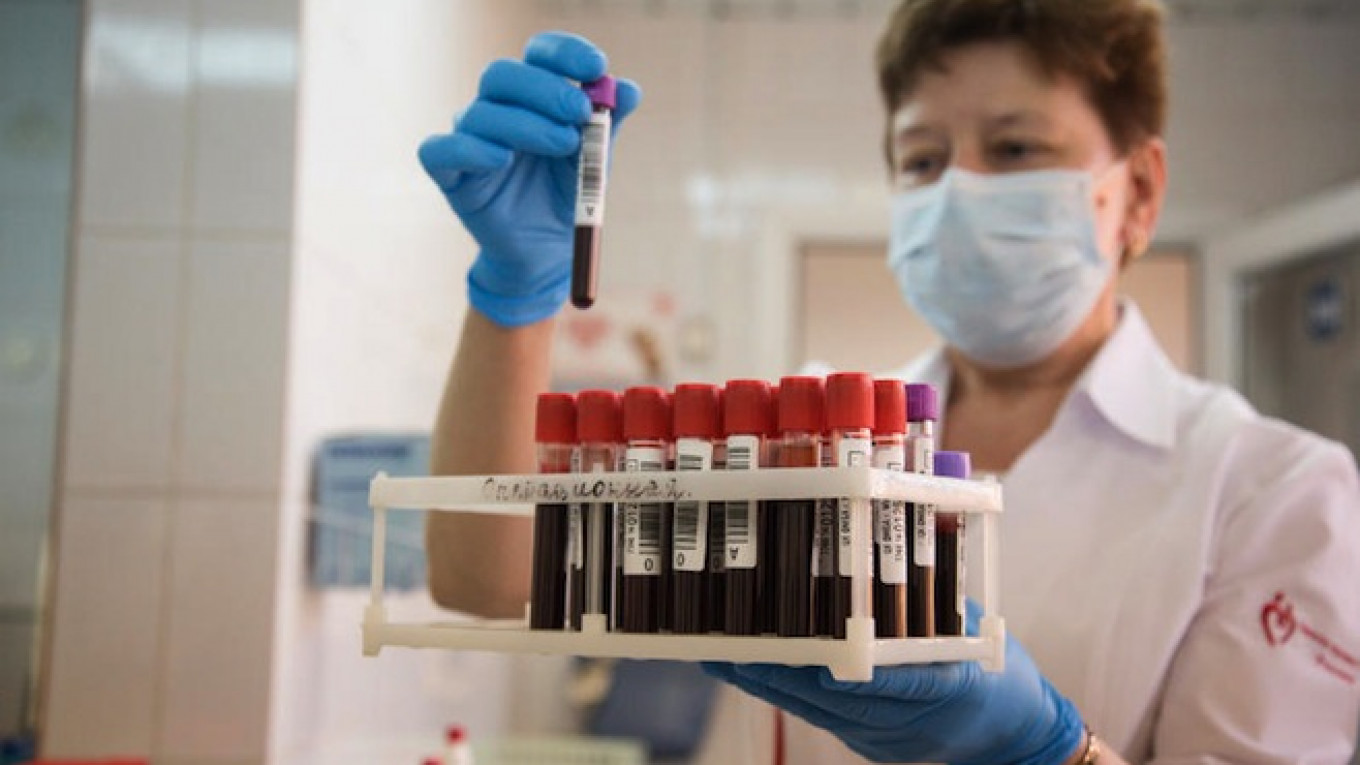The number of addicts in Russia has stabilized for the first time in decades, the country's drug agency head said Wednesday, but figures showing a sharp spike in the incidence of HIV suggest the battle against drug abuse is far from over.
Head of the Federal Drug Control Service, Viktor Ivanov, told Rossiiskaya Gazeta in an interview published Thursday that the number of addicts in Russia had previously increased by more than 3 million people over a five-year period, and the number of drug-related deaths had been increasing by 5,000 to 6,000 annually.
"For the first time, the situation with drug addiction has given grounds for cautious optimism," Ivanov said, without specifying figures for this year.
The number of drug-related deaths in the country has also stopped growing, though nearly 100,000 people still die from drug abuse each year, Ivanov said.
The drug agency head said the reduction was especially significant considering drugs have become more available, with his agency estimating about 30 tons of heroin alone — or more than 100 million single doses — is smuggled into Russia each year, Ivanov said.
Ivanov's optimism coincided with the release of a report by the country's health watchdog warning that the rate of HIV infection was continuing to increase rapidly.
According to the report, published late Wednesday, as of Jan. 1 this year, there were 798,122 Russians registered as HIV-positive. More than 7,500 of those infected were children.
In 2013, Rospotrebnadzor recorded nearly 78,000 new cases of HIV infection among Russian citizens, the report said. In 2012, that figure was at only 69,000, and in 2011 — 62,000.
"Russians living with a positive HIV diagnosis make up 0.4 percent of the population. In other regions — Irkutsk, Samara, the Sverdlovsk region, St. Petersburg — HIV infection surpasses 1 percent," the report said.
The main cause for the high incidence of HIV cited in the report was intravenous drug use, although experts also noted that there had been a rise in the spread of HIV from unprotected sex.
The rate of infection among foreigners living in Russia was also a cause for concern, the report said, adding that in 2013, the percentage of tuberculosis and HIV infection among foreigners had spiked dramatically.
In accordance with Russian law, foreigners are required to take an HIV test before they are granted a Russian visa and the presence of an infectious disease gives authorities grounds to deport them.
Amid a dire shortage of drug rehab clinics in the country — and the staggering rates charged by many of those that are available — Ivanov argued that addicts who seek recovery still had access to more than 500 rehab clinics.
He did not specify how many of those might be free or affordable to a majority of drug users.
"One can't say that this is a lot, but it is not too few either," he said. "Another thing is that the state has no obligations to [those clinics]. Their work is not financed and not controlled."
Editor's note: An earlier version of this story cited Roskomnadzor as the source for the number of new cases of HIV infection, instead of Rospotrebnadzor.
See also:
A Message from The Moscow Times:
Dear readers,
We are facing unprecedented challenges. Russia's Prosecutor General's Office has designated The Moscow Times as an "undesirable" organization, criminalizing our work and putting our staff at risk of prosecution. This follows our earlier unjust labeling as a "foreign agent."
These actions are direct attempts to silence independent journalism in Russia. The authorities claim our work "discredits the decisions of the Russian leadership." We see things differently: we strive to provide accurate, unbiased reporting on Russia.
We, the journalists of The Moscow Times, refuse to be silenced. But to continue our work, we need your help.
Your support, no matter how small, makes a world of difference. If you can, please support us monthly starting from just $2. It's quick to set up, and every contribution makes a significant impact.
By supporting The Moscow Times, you're defending open, independent journalism in the face of repression. Thank you for standing with us.
Remind me later.






